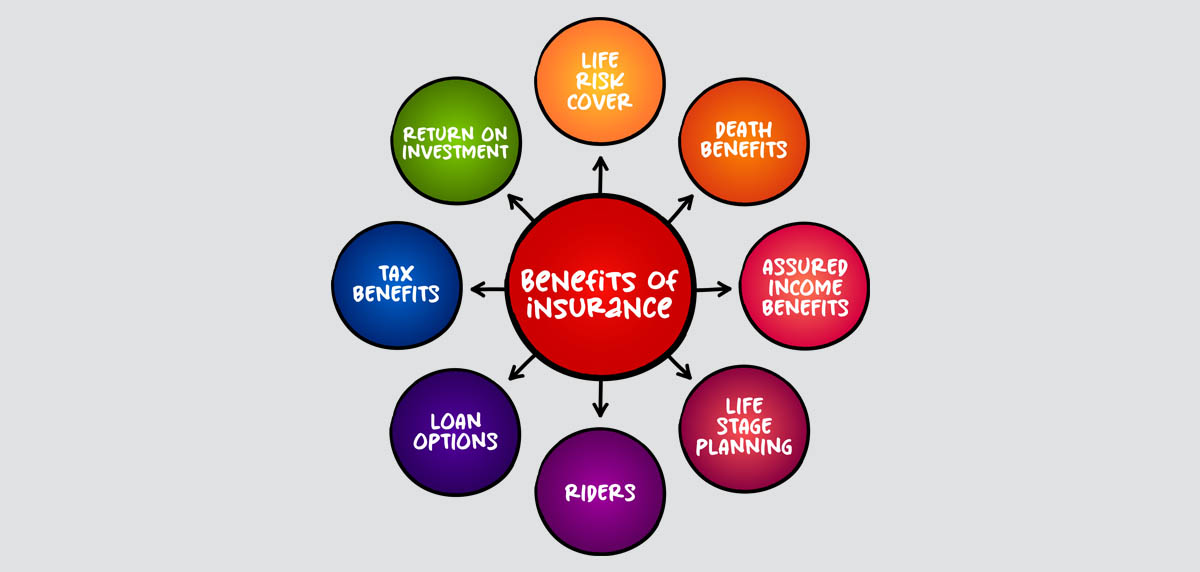Knowing what insurance is can help you make better financial decisions and build future security for yourself as well as your loved ones. So, what is insurance? Moreover, what is life insurance which is often cited as an important inclusion in almost everyone’s financial portfolio? Let’s find out.
What is Insurance?
Insurance is a financial arrangement that provides protection against potential financial losses by transferring risk from an individual or entity to an insurance company. In exchange for regular premium payments, the insurer commits to compensating the insured for specified losses, damages, illnesses, or death, depending on the terms of the policy. This mechanism ensures that individuals and businesses can manage uncertainties and maintain financial stability in the face of unforeseen events.
In the Indian context, insurance plays a pivotal role in safeguarding families against financial hardships arising from unexpected situations. It encompasses various types, including health, motor, property, and life insurance, each designed to address specific risks and provide tailored coverage. Now that you know what insurance is and what purpose it serves, you are in a better position to understand life insurance and its benefits.
Insurance in India is bifurcated into general and life insurance. As the name may suggest, life insurance offers coverage for a person, so that they could offer financial security for their loved ones. Some common types of life insurance are term insurance, whole life insurance, endowment plans, ULIPs, and more. Most of these plans are offered for a flexible duration.
Under the umbrella of general insurance, you will find policies that offer coverage for the things you own, or your assets. For example, if you want an insurance cover for your house, you may look for home insurance under the broader category of general insurance. Some common types of general insurance are car insurance, two-wheeler insurance, cyber insurance, travel insurance, and more. While health insurance is also a type of general insurance, life insurance providers may be able to offer it bundled with a life cover. Standalone health plans are available with general insurance providers.
Life Insurance: A Pillar of Financial Security
Life insurance is a contract between an individual and an insurance company, where the insurer agrees to pay a designated beneficiary a sum of money upon the death of the insured person or after a set period. This financial tool is essential for ensuring that one's family remains financially secure even in one's absence.
Key Benefits of Life Insurance
Here are some of the benefits of life insurance plans that make it a sound financial engagement for almost everyone to consider.
Financial Protection for Dependents
The primary benefit of life insurance is the financial security it offers to the policyholder's dependents. In the event of the policyholder's untimely demise, the beneficiaries receive a lump sum payment, known as the death benefit. This amount can be utilised to cover daily living expenses, repay outstanding debts, or fund future financial goals like children's education or marriage.
Wealth Creation and Savings
Certain life insurance plans, such as endowment policies and unit-linked insurance plans (ULIPs), combine insurance coverage with investment opportunities. These plans not only provide a safety net for the family but also help in wealth accumulation over time. The maturity benefits received can be used for various purposes, including purchasing property, starting a business, or planning for retirement.
Tax Benefits
Investing in a life insurance plan offers tax advantages under the prevailing laws. Premiums paid towards life insurance policies are eligible for deductions under Section 80C of the Income Tax Act, 1961, up to a specified limit. Additionally, the death benefit received by the beneficiaries is exempt from taxation under Section 10(10D), subject to certain conditions.
Loan Facility Against Policy
Life insurance policies can serve as collateral for loans. Policyholders can borrow against the surrender value of their policies in times of financial need, ensuring liquidity without compromising the insurance cover. This feature provides a safety net during emergencies, allowing access to funds without the need to liquidate other assets.
Riders for Enhanced Protection
To cater to diverse needs, insurers offer riders—additional provisions that can be added to a base life insurance policy for extra coverage. Common life insurance riders include critical illness cover, accidental death benefit, and waiver of premium. These riders enhance the policy's scope, providing comprehensive protection against various risks.
Retirement Planning
Life insurance plans can be instrumental in retirement planning. Policies like annuity plans provide regular income streams post-retirement, ensuring financial independence during the golden years. By investing in such plans, individuals can secure a steady income flow, maintain their lifestyle and meet medical or other expenses without financial strain.
Peace of Mind
Knowing that one's family is financially protected brings immense peace of mind. Life insurance ensures that, in the event of unforeseen circumstances, loved ones are not burdened with financial hardships. This assurance allows individuals to focus on their personal and professional lives without constant worry about the future.
Choosing the Right Life Insurance Plan
Selecting an appropriate life insurance plan requires careful consideration of various factors:
Assessment of Financial Goals
Determine your financial objectives, such as children's education, marriage, purchasing a home, or retirement planning. Aligning these goals with the features of a life insurance plan ensures that the policy serves its intended purpose effectively.
Evaluation of Coverage Needs
Analyze your family's financial requirements, existing liabilities, and future aspirations to decide on an adequate sum assured. This evaluation ensures that, in your absence, your family can maintain their standard of living and fulfil their dreams.
Comparison of Policy Options
With a plethora of life insurance plans available, it's essential to compare different policies based on factors like premium amounts, policy tenure, benefits offered and claim settlement ratios. Using a life insurance calculator can aid in estimating the required coverage and premium outflow, facilitating informed decision-making.
Consideration of Policy Tenure
Choose a policy term that aligns with your financial goals and the time frame within which you anticipate achieving them. For instance, if you're planning for your child's higher education in 15 years, ensure that the policy matures around that time to provide the necessary funds.
Inclusion of Relevant Riders
Enhance your policy's coverage by adding riders that address specific risks pertinent to your life situation. For example, if there's a family history of critical illnesses, opting for a critical illness rider would be prudent.
A life insurance calculator is a valuable tool that helps individuals estimate the appropriate amount of coverage needed based on factors like age, income, liabilities, and financial goals. By inputting these details, one can receive suggestions on suitable policy types, coverage amounts, and premium estimates, simplifying the decision-making process.
Understanding what insurance is and recognizing the myriad benefits of life insurance is crucial for comprehensive financial planning. Life insurance serves as a cornerstone for financial security, offering protection, investment opportunities, tax benefits, and peace of mind. By carefully selecting a life insurance plan that aligns with individual needs and goals, one can ensure a stable and secure future for their loved ones.
























